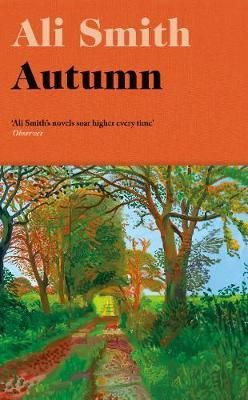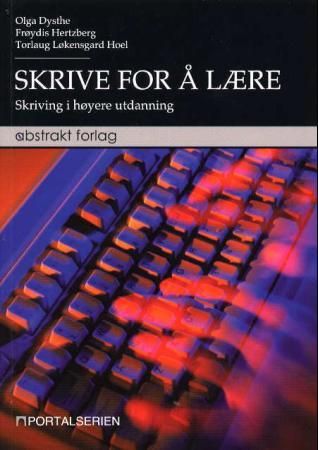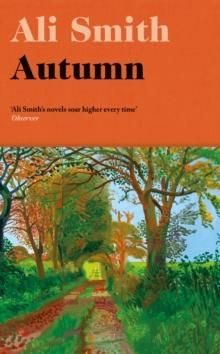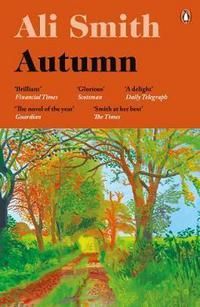Omtale fra forlaget
Longlisted for the Man Booker Prize 2017. A breathtakingly inventive new novel from the Man Booker-shortlisted and Baileys Prize-winning author of How to be both Autumn. Season of mists and mellow fruitfulness. That's what it felt like for Keats in 1819.How about Autumn 2016? Daniel is a century old. Elisabeth, born in 1984, has her eye on the future. The United Kingdom is in pieces, divided by a historic once-in-a-generation summer.Love is won, love is lost. Hope is hand in hand with hopelessness. The seasons roll round, as ever.Ali Smith's new novel is a meditation on a world growing ever more bordered and exclusive, on what richness and worth are, on what harvest means. This first in a seasonal quartet casts an eye over our own time. Who are we? What are we made of? Shakespearian jeu d'esprit, Keatsian melancholy, the sheer bright energy of 1960s Pop art: the centuries cast their eyes over our own history-making. Here's where we're living. Here's time at its most contemporaneous and its most cyclic. From the imagination of the peerless Ali Smith comes a shape-shifting series, wide-ranging in timescale and light-footed through histories, and a story about ageing and time and love and stories themselves. Here comes Autumn.
Bokdetaljer
Forlag Hamish Hamilton
Utgivelsesår 2017
Format Heftet
ISBN13 9780241207017
EAN 9780241207017
Serie Seasonal quartet (1)
Språk Engelsk
Sider 272
Utgave 1
Finn boka på biblioteket
Finner du ikke ditt favorittbibliotek på lista? Send oss e-post til admin@bokelskere.no med navn på biblioteket og fylket det ligger i. Kanskje vi kan legge det til!
Bokelskeres terningkastfordeling
8 27 27 11 1 1Bokomtaler
Høst. Ali Smith
Denne boka handler om ei ung jente sitt forhold til sin nabo, en eldre mann, i små vinduer i oppveksten - og da får man skrevet inn veldig mye egentlig.
Veldig, veldig godt språk, med mange morsomme nyanser.
Karakterene var spennende, og spenningen mellom dem, og andre spenninger, holdt meg i boka - selv om jeg også kjedet meg litt, her og der.
Forfatteren skal skrive om flere årstider, tre til, og jeg blir nok med henne.
Veldig gode karakterer. Smith har også evnen til å la situasjonene disse havner i fortelle om tiden de lever i. Dermed føles ikke Brexit som et påklistret påfunn, men noe som har en faktisk påvirkning og en egen kunstnerisk verdi.
Elisabeth vokser opp sammen med moren, som skal vise seg å være noe uansvarlig og fordømmende. De blir etterhvert kjent med naboen, Daniel Gluck. Han er godt over åtti, og Elisabeth bare et barn på 8-9 år. De blir gode venner, da moren bruker han som barnevakt både titt og ofte. For det meste går de tur, og snakker om alt mellom himmel og jord.
Som voksen besøker Elisabeth Daniel, som nå er over hundre, men han er på vei mot dødsriket, og sover for det meste.
Av og til får vi være med ham i drømmene, og tilbake til fortiden, men det er Elisabeths historie vi følger mest.
Det hoppes stadig i tid, men det er lett å følge hendelsene. Mye humor, og lekenhet.
Fascinerende bok - annerledes. Lettlest selv om den også bød på tilstrekkelig motstand.
Skriv en omtale Se alle omtaler av verket
Diskusjoner om boka
Ingen diskusjoner ennå.
Start en diskusjon om verket Se alle diskusjoner om verketSitater fra dette verket
Always be reading something, he said. Even when we're not physically reading. How else will we read the world? Think of it as a constant.
Time travel is real, Daniel said. We do it all the time. Moment to moment, minute to minute.
The pauses are a precise language, more a language than actual language is, Elisabeth thinks.
We have to hope, Daniel was saying, that the people who love us and who know us a little bit will in the end have seen us truly. In the end, not much else matters.
Lønnefrøene treffer ruta i vinden som - nei, ikke som annet, som lønnefrø som treffer vindusglass.
Legg inn et nytt sitat Se alle sitater fra verket






















































